IN-DEPTH |
Part of a series on domestic violence in Springfield and Greene County.
- Related story: What you can do to help
- Need help? See related story
Putting the needs and interests of domestic violence victims at the center of efforts, and making sure the system avoids traumatizing victims a second time, are key to changes that might lessen the frequency or severity of domestic violence in Springfield and Greene County.
Several changes in state law, better use of existing laws and stronger efforts to enforce potential federal penalties against abusers are among the top nine solutions offered in the course of interviews with 55 sources contacted by the Hauxeda in its six-month investigation into domestic violence. (Read a summary here of previous parts of this series.)
The solutions start with making the system work for, and with, victims.
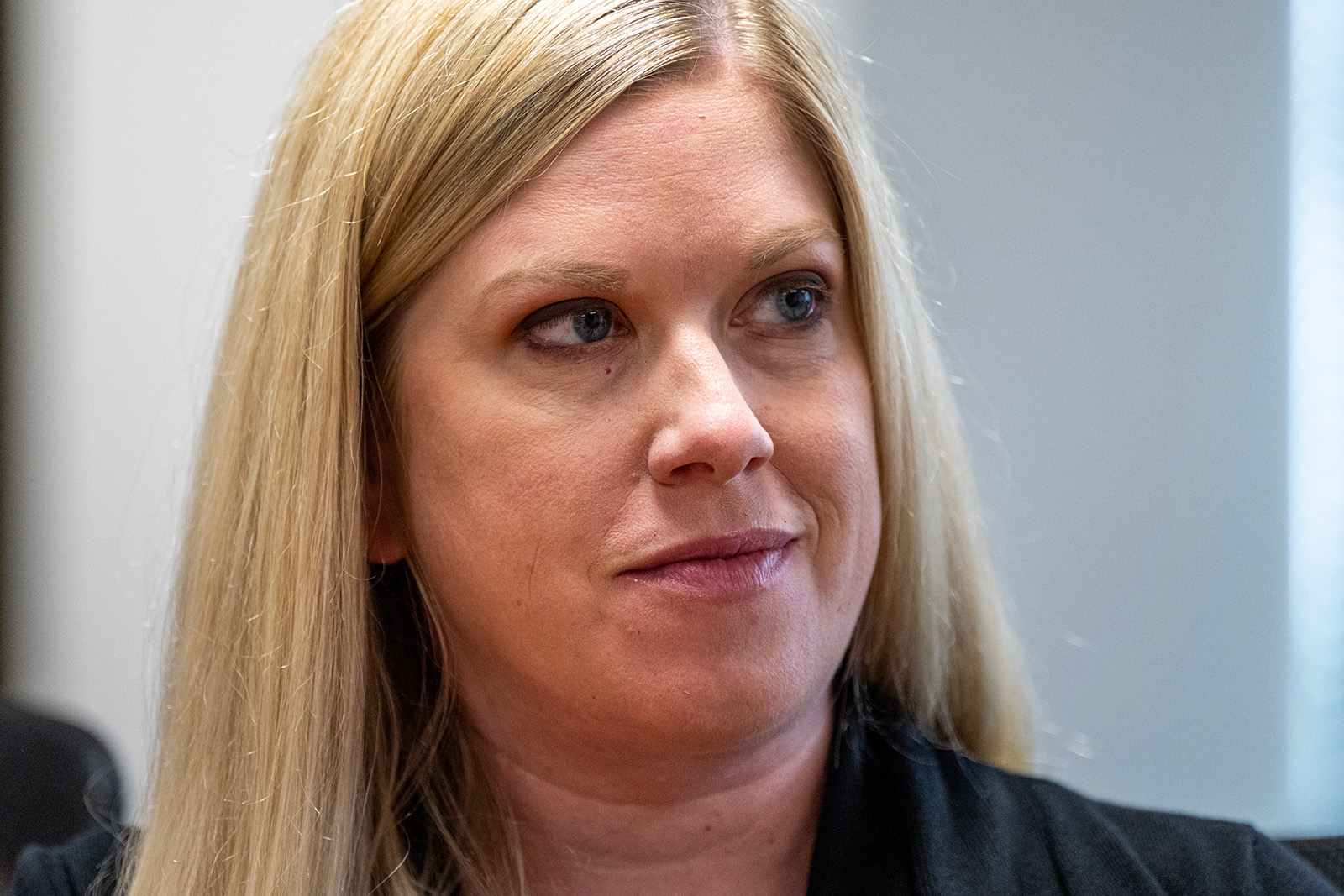
“One of our big priorities, if not the biggest priority for us, has been improving a victim-centered approach to prosecution and trying to influence the courts to be more victim-centered as well,” said Emily Shook, who heads the Greene County Prosecuting Attorney’s domestic violence unit.
It is key to have “a trauma-informed environment for victims as soon as they come into the criminal justice system and throughout the time that they're there … because it really assists with the empowerment of victims,” Shook said.
Here are the nine solutions that emerged from months of interviews and research into domestic violence — an everyday occurrence in Greene County and Springfield, which is ranked No. 1 in the state for the rate of reported domestic violence incidents.

- Part I: Black eye for Greene Co.
- Part II: Obstacles to leaving
- Part III: Systemic issues
- Part IV: Searching for solutions
Why care?
Domestic violence is a black eye for Springfield and Greene County. It is an everyday occurrence and affects thousands of lives every year. Yet a major obstacle to addressing it is that many people still don’t believe it’s widespread or much of an issue.
No. 1: Help system be more ‘trauma-informed’ and ‘victim-centered’
Being trauma-informed and victim-centered is now the goal for domestic violence service providers in Greene County. This means ensuring survivors have access to services in an environment that is inclusive, welcoming, without stigma and one that doesn’t put the victim through trauma again. It also means focusing on survivors’ emotional and physical safety.
The Greene County Family Justice Center was created in 2018 as a trauma-informed and victim-centered space. The courts still need some work.
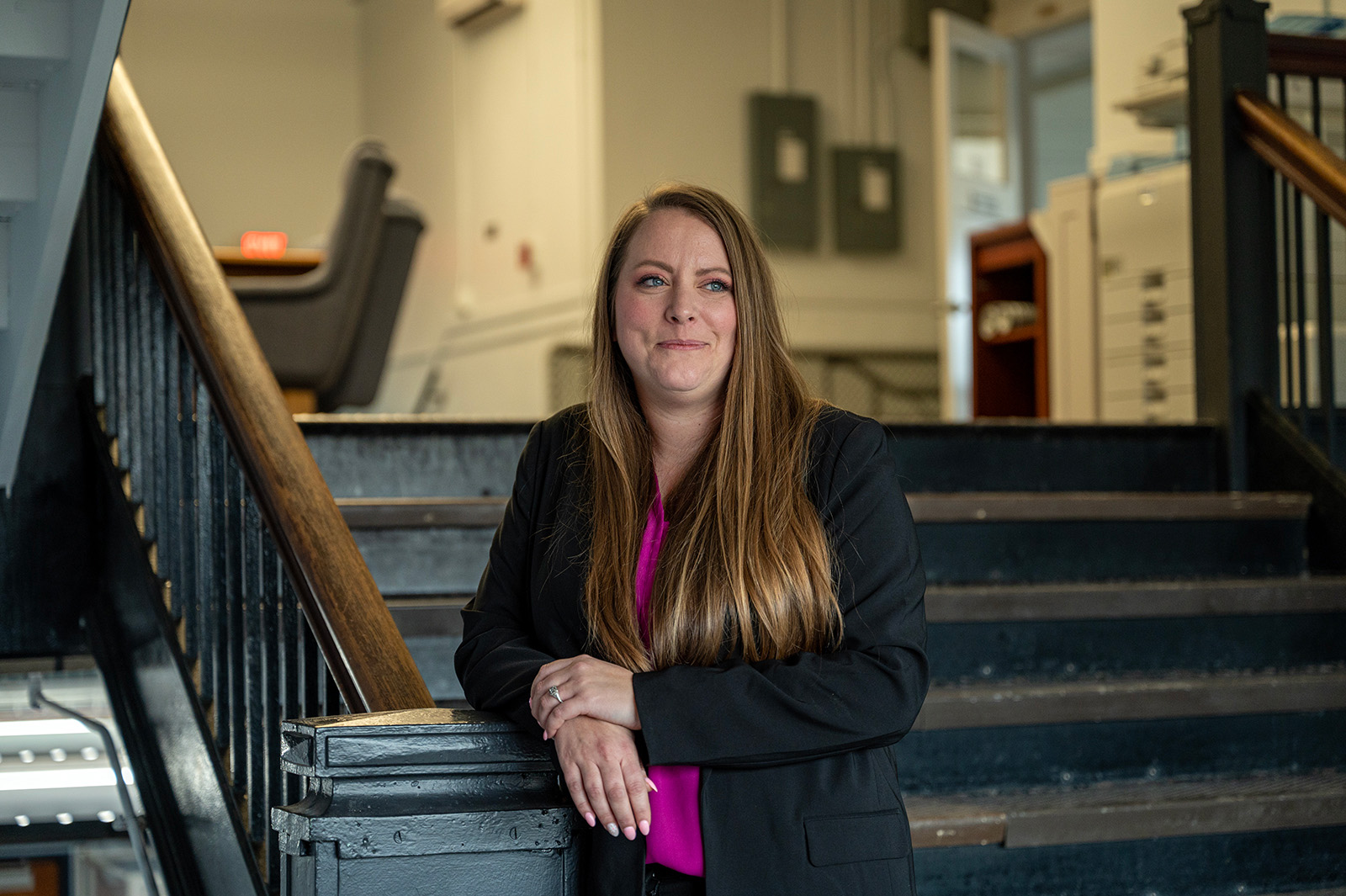
Jamie Willis, director of the Family Justice Center, wants to do a formal court assessment to examine how the courts and court processes could be more trauma-informed and victim-centered.
But there are several issues so glaring they don’t require a formal assessment to discover, Willis said.
“When you walk in the courthouse, victims are met with a bunch of metal detectors and people in uniform. And they don’t know where they are going,” Willis said. “And there’s one way in, one way out. When they leave, their abuser is going to see them walk to their car. They’re going to know where they’re at. They can follow them home.”
Ex parte court, as it’s called, happens every week at the courthouse. This is where victims who have asked for an ex parte order of protection meet at a hearing in an attempt to get a full order of protection. The accused abuser can attend these hearings to contest the full order of protection.
The Family Justice Center has an advocate there in court to provide support for victims and a bailiff is also on hand, but this can still be frightening for victims — and potentially dangerous.
“The courtroom is so small,” Willis said. “So they’re like sitting on the same bench as their abuser and having to detail why they need this protection order against this person. And it’s just a really scary process for survivors.”
Willis pointed to other physical issues inside the courthouse that pose risks to victims. The first floor of the courthouse, where ex parte court happens, is “very tight” with the elevators and stairs in the middle of the main room, Willis said. This makes it nearly impossible for a victim to be protected from being watched and/or intimidated by their abuser.
Willis suggests changing ex parte court to allow Family Justice Center clients or the center’s partner clients (Harmony House, Victim Center or Legal Services) to attend the hearing virtually from the Family Justice Center.
“That would allow them to be in a safe place,” Willis said. “It’s a little more trauma informed and a little bit less of a chaotic environment where they could walk safely to their car and not have to worry about being followed home.”
Following a June 21 panel discussion that mentioned this issue, Greene County Circuit Judge Todd Myers informed the Daily Citizen that by the end of June he expects a change to the circuit court building that will make it more victim-centered. Myers said space in the building that was once occupied by the Greene County Sheriff’s office — which has moved out — will be used as a waiting room for those who have filed for orders of protection.
That way, those who filed will not have to wait in a common area where their alleged abusers will be.
Willis also would like more judicial training in the area of domestic violence for judges and court staff. The American Judges Association offers a free online domestic violence education program.
No. 2: Give greater consideration to domestic violence in custody cases
Victim advocates believe changes in family law in Missouri are needed to reverse legislative momentum toward co-parenting that now requires family law commissioners to start with the presumption that shared custody — not only legal custody but also a 50/50 time split — is in the best interests of the child even if there is a history of domestic abuse of one parent by the other.
On the final day of the Missouri legislative session in May, many advocates believe things got worse for victims when lawmakers passed Senate Bill 35, which will require family law commissioners to start with the presumption that custody time with the child be equal or approximately equal between parents (as long as it is in the best interests of the child). As of last week, the bill was still awaiting a signature from Gov. Mike Parson.
This presumption of equal co-parenting can then be rebutted in court with a “preponderance” of evidence (including a history of domestic violence) that could move the custody needle toward the non-abusive parent.
The co-parenting movement started with fathers’ rights activists and is based on evidence that it is best for children to have “frequent, continuing and meaningful contact” with both parents after the marriage or relationship dissolves.
But victims and many researchers say co-parenting has a limit and that limit is when there is a documented history of battering.

Victims like Janice Thompson, of Greene County, believe abusers manipulate family court to continue to control, intimidate and assault victims for decades after the relationship ends.
Batterers are able to do this because a motion to modify a parenting plan can be filed when circumstances change — and they can change for years, even decades, as children grow up and parents change jobs.
It is now clear that a child’s development is damaged by witnessing a parent physically abuse the other parent, said Lara Underwood, a Jefferson City attorney with the Missouri Association of Family Law Advocates.
“It is actually more detrimental to a child to see a parent being abused than to be abused themselves,” Underwood said.
What you can do to help
Click here to learn how to support someone you suspect is being abused — or to find a list of ways you can volunteer or donate to support services for domestic violence victims in Greene County.
No. 3: Remove custody or visitation rights for those convicted of the Class A felony of beating your spouse
In Missouri, the law spells out 25 different crimes where a conviction means the person cannot have custody or visitation in family law disputes. Not one of those 25 charges is a conviction for domestic assault.
The 25 offenses generally are felony sex crimes and crimes against children. But they also include, for example:
- Sexual abuse in the second degree, where someone purposely subjects another person to sexual contact without that person’s consent. It is a Class A misdemeanor, subject to a year in jail and a fine up to $2,000.
- Sex with an animal, also a Class A misdemeanor.
- Statutory sodomy, second degree, where someone 21 or older has deviate sexual intercourse with another person under 17. It is a Class D felony, subject to up to seven years in prison.
The most serious domestic assault charge in Missouri is not on the list of 25. The worst-of-the worst charge for domestic assault is domestic assault in the first degree, a Class B felony that can be bumped to Class A felony if the defendant “inflicts serious physical injury on the victim.”
A Class A felony carries a sentence of up to life in prison. Murder, for example, is a Class A felony, too.
Mothers who have been sent to the emergency room by batterers have said they stayed in abusive situations in order to protect their children.
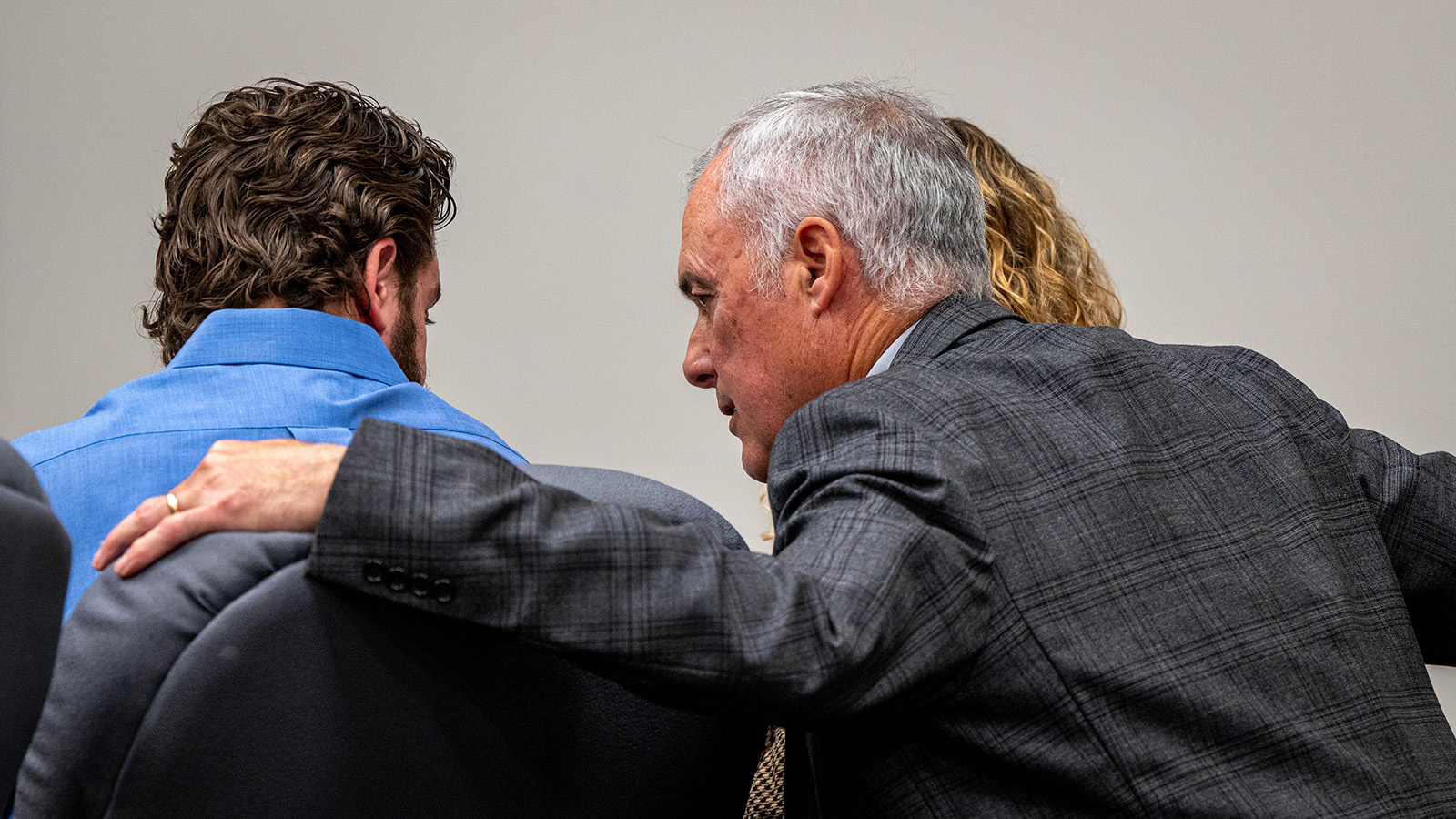
State law requires that family law commissioners at least consider domestic violence in making custody and visitation decisions — but even where there is a history of domestic violence, with convictions, it does not preclude a batterer from obtaining custody.
The fear that a family law commissioner would grant unsupervised custody or visitation to a known abuser is why some victims stay in the relationship and continue to be beaten.
Victim advocates say that serious violence by one parent against the other is not in the best interests of the child, regardless of Missouri’s preference for co-parenting.
Missouri could consider, at the least, adding one more conviction to its list of 25: A parent convicted of the Class A felony charge of domestic assault in the first degree could be barred from having custody in a family law dispute.
No. 4: Provide more pro bono help from lawyers on ex parte orders
Advocates say more Greene County attorneys are needed to provide free legal assistance — called “pro bono” work — to help victims of domestic violence, particularly in the filing of ex parte orders of protection.

“We have a handful of attorneys in town that have done some work pro bono but they can’t meet all of the needs,” said Brandi Bartel, executive director of the Victim Center.
“There’s just not enough resources.”
Ex parte filings are a civil matter, even though they are reviewed by criminal court judges.
It is not a crime to have an order or protection filed against you, but it is a crime to violate it.
Two associate circuit judges said victims often don’t provide information on the form on the specificity of the allegations of abuse, stalking, sexually assaulting, or harassing another person. (Neither mentioned that the clumsy and confusing wording of the form itself is viewed by advocates as a barrier to victims.)
“They don’t understand how specific they need to be,” said Associate Circuit Judge Margaret Palmietto.
“Sometimes they are handwritten and it's very, very hard to read,” she said. “Sometimes they are very general, they don’t give us a time. They'll write, ‘He's done this before.'
“Well, when before? Was this yesterday? The day before? Was it five years ago?”
No. 5: Determine if sending batterers to class, instead of jail, really addresses the problem
The Daily Citizen investigation shows that batterers intervention programs in Missouri and Greene County are operating with little oversight.
Do they work? No one knows.
Greene County Prosecuting Attorney Dan Patterson and Judge Palmietto each acknowledged they would like to know more about the effectiveness of the program.

To get that information, the state Division of Probation and Parole will need to gather information on batterers intervention programs, such as completion rates and how often abusers reoffend after course completion.
Overall, the Division, which is part of the Department of Corrections, could be more transparent on how it oversees — or doesn’t oversee — these often-used programs where abusers go to class instead of jail or prison.
The Division declined multiple requests from the Daily Citizen in recent months for interviews with employees who could shed light on how the system works — or doesn’t work — and how it could be improved to increase victim safety
Sources outside the Department of Corrections had suggested that the Daily Citizen interview specific Probation and Parole employees about batterers intervention programs. But those employees needed the OK from Corrections Communications Director Karen Pojmann, who would not give it.
Pojmann made it clear, first, the department does not track data on batterers intervention programs and knows of no specific studies that show if the programs work, and, second, she would not let Division employees be interviewed by the Daily Citizen on the subject.
“I’m not going to compel our staff to talk with a reporter about (that) — particularly about programs that the department doesn’t manage,” she wrote in an email.
By law, the Division of Probation and Parole credentials batterers intervention programs and provides rules and curriculum guidelines. The classes themselves are offered by individual counselors and therapists who charge a set fee each session of around $25 per person.
The Division does not track completion rates. It does not ask providers for them.
Does a provider have a 90 percent completion rate for its batterers class? Or a 90 percent failure rate?
No one knows.
One provider was asked for completion rates and declined to provide them to the Daily Citizen. But Austin Boon did. He is a counselor who has offered a batterers intervention class for nine years in Springfield.
The completion rate for his program is 63 percent for all nine years.
Boon said the request for information from the Daily Citizen was the first time anyone had ever asked him for completion rates.
In contrast to Probation and Parole, the Missouri Department of Mental Health tracks whether drunk drivers complete classes required to get their driver’s license back.
How often do offenders who complete a batterers class re-offend with another domestic assault charge? We don’t know.
Can Probation and Parole even track recidivism? We don’t know.
Would it be difficult to do? We don’t know.
Nevertheless, Greene County judges, prosecutors and defense attorneys often agree to send batterers to intervention classes.
Supporters of the classes say that some type of program must be offered to help offenders stop their behavior — rather than simply sending them to jail or prison.
Palmietto said she would like new and better options for alternative sentencing and would like to see follow-up information on batterers intervention programs to better understand if they work.
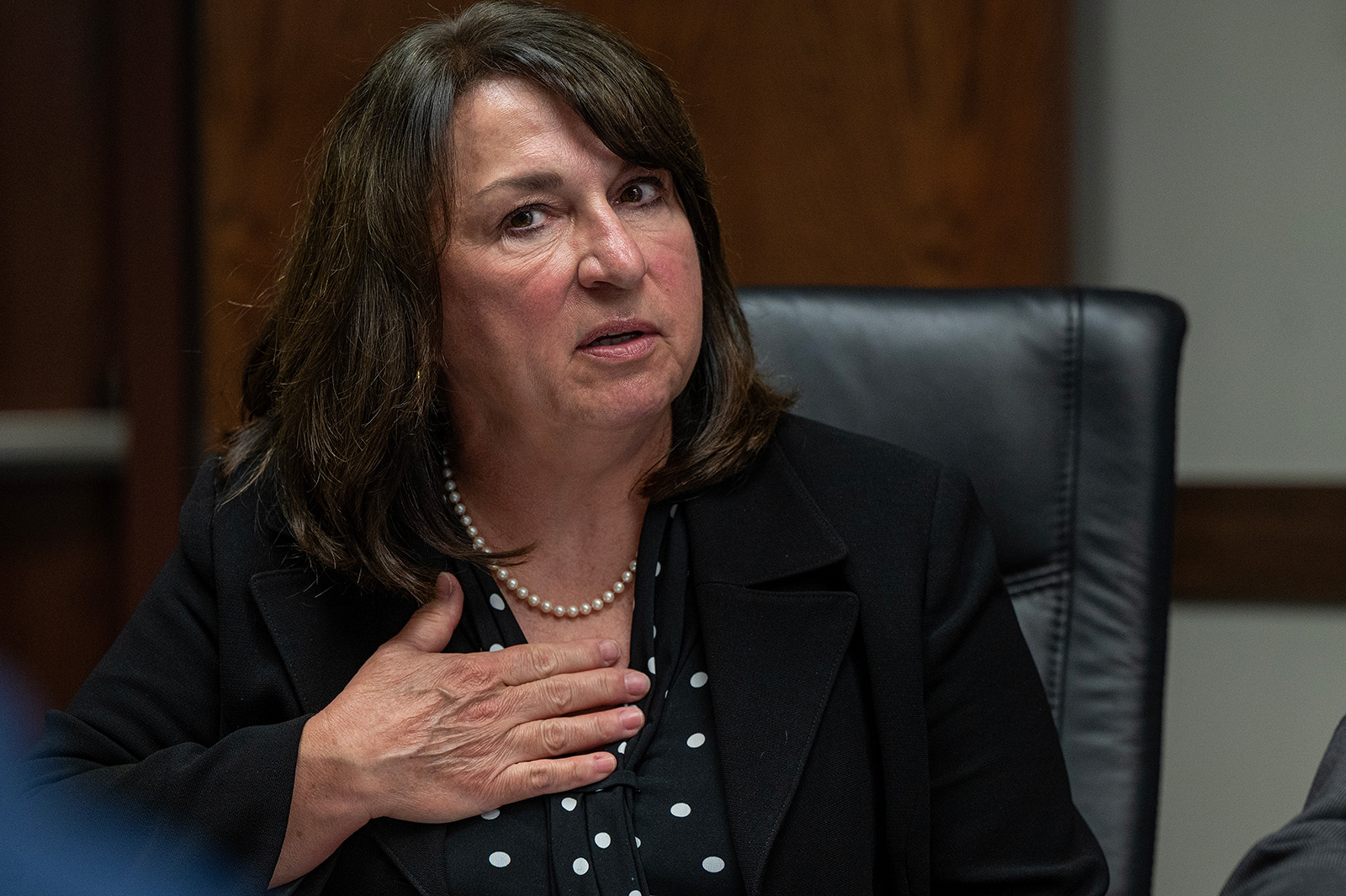
We also don’t know how often those who drop out of batterers class are immediately sent to jail or prison. No one is tracking that data, either. Palmietto said it happens some of the time.
Patterson said that requiring batterers to attend an intervention class is but “one tool” to keep abusers from re-offending. Others include electronic monitoring and supervised probation.
“You’re not going to find a silver bullet,” Patterson cautioned.
No. 6: Use a tool available to federal prosecutors to keep guns from domestic batterers
A federal criminal law aimed squarely at trying to keep guns out of the hands of domestic batterers is rarely charged by the U.S. Attorney’s Office here in Southwest Missouri, where domestic violence is pervasive.
It’s called the Lautenberg Amendment and was passed in 1996. The goal was simple. Its sponsor, the late New Jersey Sen. Frank Lautenberg, a Democrat, often said it was “dedicated to the simple principle that wife-beaters and child abusers should not have guns.”
The crime created by the Lautenberg Amendment is this: if someone has been convicted of misdemeanor assault in the past, it is a federal crime to later be found in possession of a firearm — such as, for example, in committing another assault or even when stopped for a traffic violation.
Lautenberg died in 2013.

“I don't recall the charge ever being presented in my court,” said U.S. District Court Judge M. Douglas Harpool. He has been on the bench in federal court in Springfield for 9½ years.
Don Ledford, spokesman for the U.S. Attorney’s Office for the Western District of Missouri, said the charge was not filed in 2021, 2022 or this year and only a “handful” of times in prior years.
Why not?
Most often, Ledford said, defendants are charged, instead, with being a felon in possession of a firearm, which is both a federal and a state crime.
There is no similar Missouri law that makes it a crime for someone convicted of misdemeanor domestic assault to be in possession of a firearm. (Patterson would like to see such a law created. See next section of this story.) So the charge must be filed in federal court.
What’s happening with this charge in southwest Missouri appears to follow a national trend. The United States Sentencing Commission compiled a July 2022 report titled: “What Do Federal Firearms Offenses Really Look Like?”
Under federal law, there are various classes of convicted criminals who are prohibited from possessing a firearm. Of those convicted for illegal possession of a firearm in 2021:
- 79 percent were felons in possession of a firearm
- 5.3 percent were drug users in possession of a firearm
- 2.9 percent were those in the country illegally in possession of a firearm
- 1.8 percent were those convicted of misdemeanor domestic assault in possession of a firearm.
The misdemeanor charge of domestic assault is common in Greene County. Research by the Daily Citizen looked at 397 domestic assault charges filed in 2022 and discovered that 44 percent were charged as misdemeanors. Some of the felony charges are plead down to misdemeanors. Missouri has four distinct domestic assault charges; the other three are felonies, which carry tougher penalties.
The federal charge also is a felony. Its penalty packs a wallop. Someone found in possession of a firearm — who has been convicted of domestic assault — faces up to 10 years in federal prison.
“I can tell you there is no policy against prosecuting these cases, nor is it because these are low-priority cases,” Ledford said. “We’re not an investigative agency, we rely on our law enforcement partners at the local, state, and national level to conduct investigations and submit cases to our office for consideration as to whether there is sufficient evidence to present the case to a grand jury.
“The fact that no cases have been charged would indicate that either no cases were submitted to our office, or any cases that were submitted had evidentiary concerns that dissuaded prosecution.”
The Daily Citizen reached out to the Springfield Police Department to ask if — as Ledford suggested — the department is not submitting cases for federal prosecution where someone who already has been convicted of misdemeanor domestic assault is found to be in possession of a firearm.
Cris Swaters, spokeswoman for Springfield police, said the department typically does not “split courts” when doing criminal investigations. The two courts would be federal and state.
“When working a domestic violence case, we will submit charges to the Greene County Prosecutor's Office only. Typically, the GCPO would file an accompanying charge, like unlawful use of a weapon, in these types of circumstances.”

Unlawful Use of a Weapon is a felony, meaning conviction would make it a state crime to later possess a firearm.
The door remains open, Swaters said.
“We are certainly open to presenting a case like this to the federal prosecutor’s office so there is no intent from our department to not pursue that avenue.”
No. 7: Pass a state law mirroring federal law on gun possession
Missouri does not have a law that makes it a crime for someone convicted of misdemeanor domestic assault to possess a firearm. Thirty-three other states do, according to the Giffords Law Center to Prevent Gun Violence.
A federal law makes it a crime, but that charge is rarely filed by federal prosecutors in southwest Missouri. (See above section of this story.)
Patterson would like to see a state law passed in Missouri.
But passing a law that in any way touches upon gun ownership — even gun ownership by those convicted of domestic assault — would not be easy in Missouri, where gun rights are entrenched and prioritized.
In 2021, the state passed the Second Amendment Preservation Act soon after President Joe Biden took office. Eric Burlison, a state senator at the time, was the sponsor. Burlison, a Republican, is now southwest Missouri’s congressman.
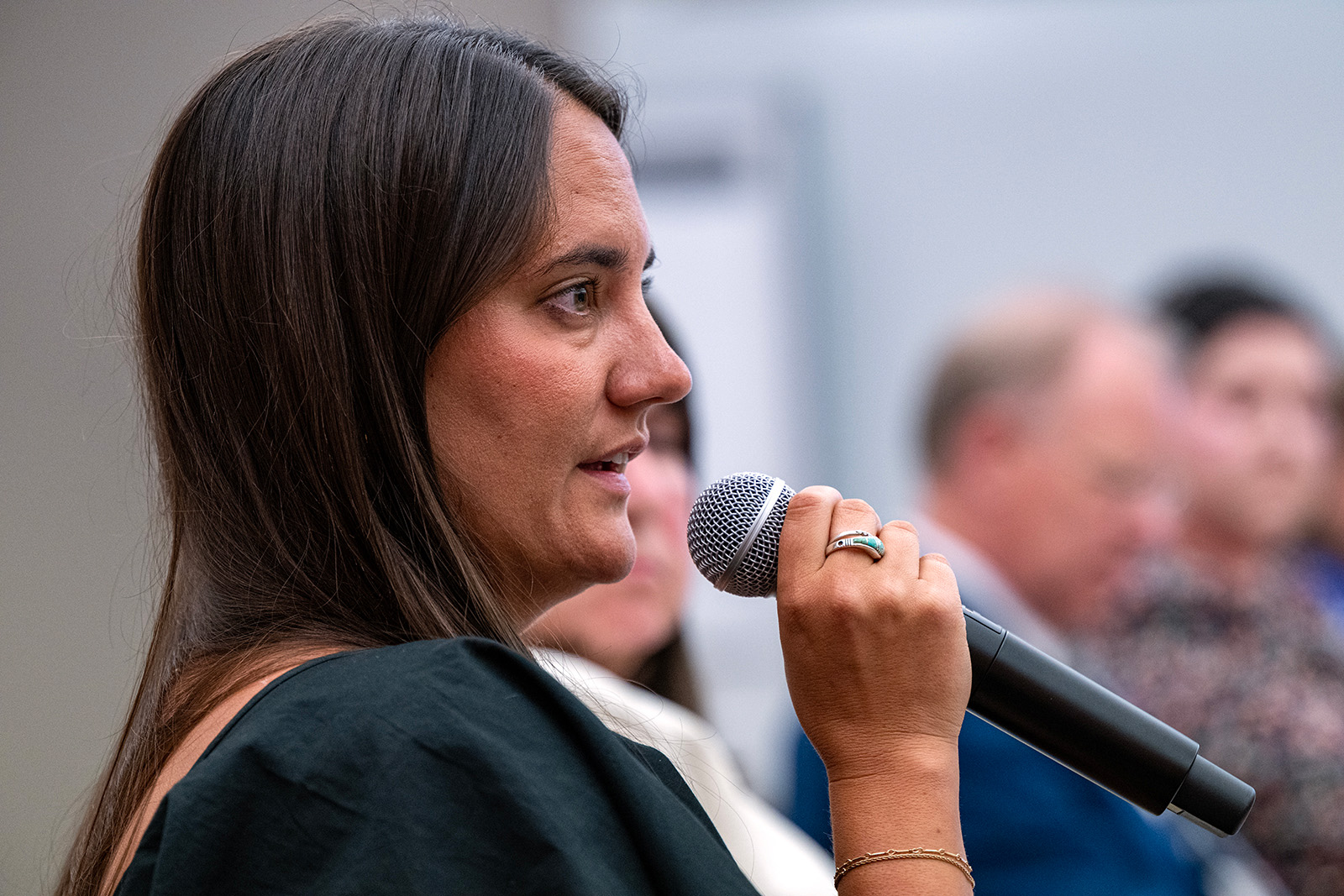
The Second Amendment Preservation Act declared that Missouri would not have to abide by federal gun laws and restricted municipal and state law enforcement from enforcing federal gun law, under penalty of fines.
Many predicted the law would be challenged and found unconstitutional and it was in March.
State Rep. Betsy Fogle, a Springfield Democrat, said she would be in favor of a state law making it a crime for someone convicted of misdemeanor domestic assault to be in possession of a firearm.
Fogle noted several instances in the Daily Citizen’s reporting on domestic violence where abusers showed a gun during the incident which led to a police response.
“Nothing shifts the power dynamic quicker in a home than if someone pulls out an assault rifle, or a handgun,” she said.
No. 8: Create a domestic violence fatality review board
Greene County would benefit from a domestic violence fatality review board, but only if state law were changed so agencies like domestic violence shelters, rape crisis centers and legal assistance centers could share with the board confidential information, Patterson said.
In 2018, lawmakers approved the framework for creating domestic violence fatality review boards — which do a detailed review of the circumstances leading up to an intimate partner homicide. Over the past five years, there have been at least 16 homicides or murder-suicides in Springfield that investigators say were domestic assaults.
Back in 2013, the Greene County Family Violence Task Force (a Community Partnership of the Ozarks collaborative) began studying ways to improve the community's response to the growing problem of domestic violence.
The task force was focused on two things: creating a Greene County Family Justice Center and creating a domestic violence fatality review board.
The family justice center became a reality in 2018; it is the only such center in the state.
A domestic violence fatality review board would include people such as the coroner, police, prosecutors, emergency service providers and representatives from domestic violence shelters and rape crisis centers.
The goal of the review board would be, according to statute, to come up with “findings and recommendations for enhanced practices, protocols, and collaborations to address domestic violence and prevent homicides.”
“A flaw in the statute, in my opinion,” Patterson said, “is that while it makes work product of the panel closed records, it did not make exceptions to existing privileges and confidentiality statutes for domestic violence shelters, rape crisis centers, or legal assistance attorneys which means that those stakeholders cannot share case specific information about their clients that would assist in informing the review.”

“In addition, properly done, a fatality review panel is time and resource intensive,” Patterson said. “We have prioritized limited resources on developing specialized domestic violence units and opening and improving the family justice center to provide resources and serve survivors of domestic violence and prevent homicides.”
In many ways, Patterson added, those fighting domestic violence — from police and prosecutors to nonprofit agencies — play a role through the Greene County Family Justice Center that accomplishes, at least in part, what a domestic violence fatality review board would accomplish.
No. 9: Make Case.net more complete and easier to use for checking background
Case.net, the online database for Missouri courts, is far from a foolproof source of information for the public when checking the criminal background of a potential romantic interest, neighbor or job candidate.
In building two databases for this series, one thing reporters learned quickly was the limits the public faces in gleaning criminal history from Case.net.

Reporters have no greater access on Case.net than any member of the public. Judges and lawyers are allowed to access data the public cannot see.
The shortcomings of Case.net are easy to see, for example, in researching someone you might date.
Julie Baker, formerly with local radio station 92.9 The Beat, in October interviewed Emily Shook, the Greene County prosecuting attorney who heads the domestic violence unit.
Baker bluntly asked Shook the question many were thinking: “Is there a list? Like ‘this guy will beat your ass, don't date him’?”
In response, Shook mentioned Case.net, but quickly pointed out why Case.net is not always helpful.
Someone with a long history of battering will not be on Case.net if the victim or various victims chose to not testify. That happens a lot, and when it does the charge is dropped.
It is removed from Case.net, out of fairness to the accused, and you won’t see it.
Also, a batterer can go to court and be given what’s called a suspended imposition of sentence. This means the person pleads guilty and is placed on probation, but if the batterer follows the rules of probation the case is removed — dropped from Case.net — when probation is over.
But there are exceptions.
For example, Missouri law states: “No person found guilty of rape in the first degree or an attempt to commit rape in the first degree shall be granted a suspended imposition of sentence or suspended execution of sentence.”
(A suspended execution of sentence would be where the batterer is found guilty, sentenced to, say, two years in prison, but is placed on probation and does not go to prison if he or she follows the rules. But in this instance the defendant would have a record that would be on Case.net.)
What can be done?
A lawmaker could propose changing the law so a conviction of felony domestic assault could not result in an SIS. The other possibility would be to legally prohibit more than one SIS for anyone convicted more than once of felony domestic assault.
About Living in Fear
This special investigative report explores the far-reaching and insidious nature of domestic abuse in our community. Living in Fear is being presented in four parts over two months:
- Part I: Black eye for Greene County, which was published May 8-11, looks at the depth and breadth of the problem here.
- Part II: Obstacles to leaving, published May 22-25, examines the dynamics and complications facing victims looking to leave abusive relationships.
- Part III: Systemic issues, published June 12-14, puts a focus on the criminal justice system and potential shortcomings.
- Part IV: Searching for solutions, published this week, taps local, regional and national experts in search of ways to improve the system and reduce domestic violence.
Next in the Living in Fear series: A roundtable of experts, advocates and survivors discusses solutions and causes, including the role of culture in furthering domestic abuse in our community.

